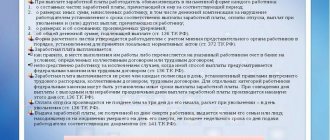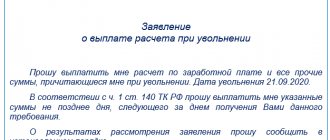Violations of employers in the field of wages
Today, violations of labor relations in the form of unlawful delays in payment of wages to employees are widespread. However, this applies not only to salaries, but also to other payments.
It is a rare leader who has never violated these norms. Particularly common violations in this area are:
- non-payment of wages in whole or in part;
- wages not paid in full;
- remuneration made with items the free civil circulation of which is prohibited or limited;
- incorrect payroll;
- incorrect calculation of overtime pay;
- deprivation of bonus;
- setting a salary below the minimum wage and others.
Employers and their representatives may be held liable for such violations. The employer's responsibility for violating the terms of payment of wages is especially emphasized. The law names the head of the organization, as well as officials (managerial employees), as the representative of the employer - a legal entity. These persons, by virtue of various documents and job descriptions, are required to deal with paperwork related to remuneration. Depending on their responsibilities, these persons may be deputy managers, chief accountants, or heads of structural divisions.
Let's sum it up
- Regarding the timing of salary payments, the rules enshrined in the Labor Code of the Russian Federation apply, obliging the employer to make such payments twice a month and adhere to the dates established for this.
- A delay in payment allows an employee not only to appeal to Rostrud or the courts, but also to suspend work if wages are not paid within 15 days. The employer is obliged to pay for the period of suspension if all the conditions accompanying this procedure are met.
- For an employer, untimely payment of wages results in liability, which has 3 types - material, administrative, criminal. The first boils down to the need to pay compensation for the delay, but may also require compensation for moral damage. Involvement in the second is carried out by an inspector of Rostrud, and it may concern both the employer and its officials. The third arises only for managers and only if they have a personal financial interest in delaying payments.
If you find an error, please select a piece of text and press Ctrl+Enter.
Who can be held accountable
Today, in order to increase the protection of workers from employers who violate labor laws, the Law of the Russian Federation dated July 3 has been prepared. 2021 No. 272 - Federal Law, which comes into force on October 3, 2021. This law will make adjustments to the articles of the Code of Administrative Offenses of the Russian Federation on violations related to non-payment of wages and other payments.
It is planned to increase the size of fines for repeated violations. Here it is necessary to pay special attention to the fact that if earlier for non-payment of wages or other amounts of money due to an employee, the employer could be held accountable under Part 1 of Art. 5.27, then in accordance with the novelties he will be liable under Part 6 of Article 5.27 of the Administrative Code.
Consequently, if, in addition to violations of delayed wages, other offenses that violate labor relations are discovered, the employee may be subject to several fines at once.
Part 1 art. 142 of the Labor Code of the Russian Federation established that the employer and his appointed representatives are responsible for violation of the rules on timely payment of wages to employees, as well as for other offenses provided for by law. It doesn’t matter here whether wages were delayed for one employee or for an entire team.
State control over compliance with labor legislation
In accordance with Article 353 of the Labor Code of the Russian Federation, Federal state supervision over compliance with labor legislation and other regulatory legal acts containing labor law norms is carried out:
- =federal labor inspection
in the manner established by the Government of the Russian Federation.
This procedure was approved by the Decree of the Government of the Russian Federation dated September 1, 2012. No. 875 “On approval of the Regulations on federal state supervision of compliance with labor legislation and other regulatory legal acts containing labor law norms.”





